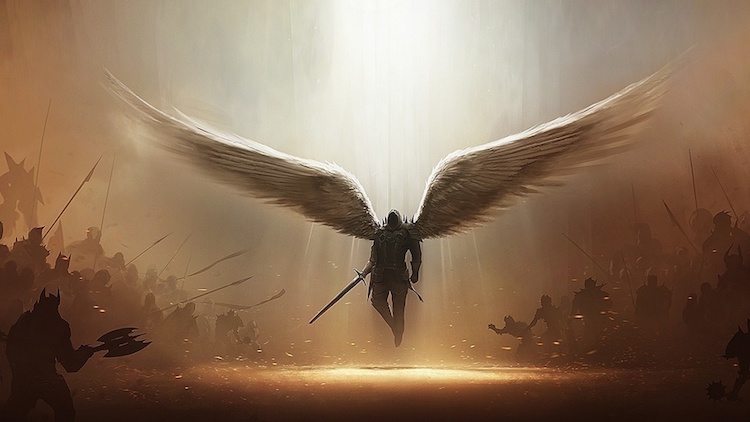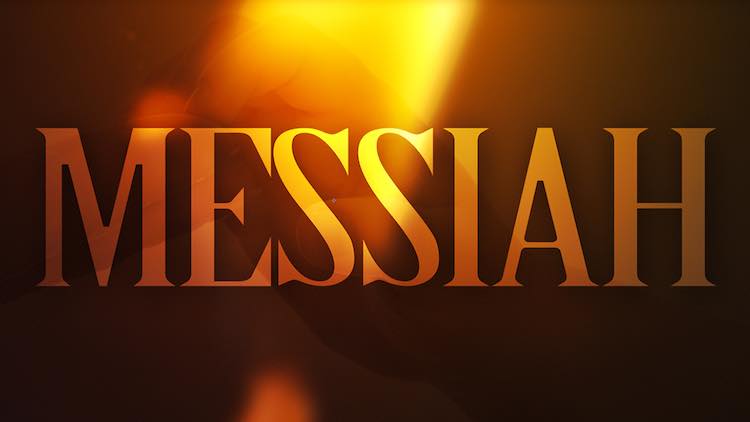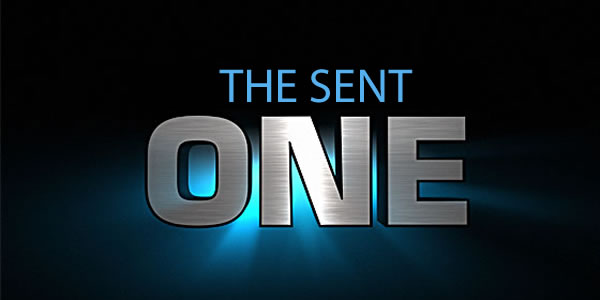One of the greatest obstacles for humankind regarding belief in Yeshua as the Messiah of God is the understanding that Yeshua is both God and man at the same time. How can God become man? How can Yeshua pray to the Father in heaven if both Yeshua and the Father are God? Isn’t Yeshua simply praying to Himself if He is God?
The mystery of God’s identity is great and we must be careful to not put God in a box of our own making. The Bible is a record of God’s Word to us and through His Word we must be able to substantiate our beliefs in who God is. This week’s Torah Portion provides two significant examples of how God has revealed Himself to humankind.
Seeing God
One example in this week’s Torah Portion that clearly details God’s revelation of Himself to humankind occurred when God invited Moses and the elders of Israel to come up on the mountain to worship Him:
Then Moses went up with Aaron, Nadab and Abihu, and seventy of the elders of Israel, and they saw the God of Israel; and under His feet there appeared to be a pavement of sapphire, as clear as the sky itself. Yet He did not stretch out His hand against the nobles of the sons of Israel; and they saw God, and they ate and drank. – Ex. 24:9-11
In this magnificent encounter between God and man, the LORD Himself was revealed to mere men and they lived. From this documented appearance of God we can conclude that a person can behold God with his or her eyes if God so allows them. For a more thorough study on this subject of “Seeing God,” I recommend the following article: The Messiah & The Jewish People
The Angel of God
The second example in this week’s Torah Portion which provides insight into how God reveals Himself to humankind is found in a few verses in which God spoke of a certain angel whom He would send to guide His people:
Behold, I am going to send an angel before you to guard you along the way and to bring you into the place which I have prepared. Be on your guard before him and obey his voice; do not be rebellious toward him, for he will not pardon your transgression, since My name is in him. But if you truly obey his voice and do all that I say, then I will be an enemy to your enemies and an adversary to your adversaries. For My angel will go before you and bring you in to the land of the Amorites, the Hittites, the Perizzites, the Canaanites, the Hivites and the Jebusites; and I will completely destroy them. – Ex. 23:20-23
This angel, whom God would send to go before His people Israel, would protect the people and lead them into the Promised Land.
Who was this angel? Was this angel simply an angel of God or was he someone greater? The angel which is spoken of in the above verses is referred to as “מלאכי” – “Malachi” – “My angel” or “My messenger.” The same Hebrew word “מלאך” – “malach” is used in the Bible for both “angel” and “messenger” and is only distinguished by the context in which the word is found.
Characteristics of the Angel
The LORD provided us with specifics about this angel which sets him apart from other angels. The LORD specifically said: ”Be on your guard before him and obey his voice; do not be rebellious toward him, for he will not pardon your transgression, since My name is in him. (Ex. 23:21). The Israelites were commanded to be careful to obey the voice of this messenger. The reason given was that the name of the LORD was in him. His voice would be authoritative and this messenger of the LORD would literally bear the Name of the LORD. Who was this messenger of God?
As the LORD continued to explain the role and function of His angel, He equated the voice of the angel with His own voice: “But if you truly obey his voice and do all that I say, then I will be an enemy to your enemies and an adversary to your adversaries.” (Ex. 23:22) The LORD seems to imply in these words that this messenger would speak His very words. This was confirmed forty years later through an encounter of Joshua with a messenger of the LORD. This messenger met Joshua as he was literally beginning to lead the people into the Land of Promise.
Joshua Meets the Messenger
When the Israelites entered into the Promised Land, they crossed the Jordan and prepared to take Jericho, the first city west of the Jordan River. It was at this time that Joshua was visited by a messenger of the LORD:
Now it came about when Joshua was by Jericho, that he lifted up his eyes and looked, and behold, a man was standing opposite him with his sword drawn in his hand, and Joshua went to him and said to him, “Are you for us or for our adversaries?” He said, “No; rather I indeed come now as captain of the host of the LORD.” And Joshua fell on his face to the earth, and bowed down, and said to him, “What has my lord to say to his servant?” The captain of the LORD’s host said to Joshua, “Remove your sandals from your feet, for the place where you are standing is holy.” And Joshua did so. Now Jericho was tightly shut because of the sons of Israel; no one went out and no one came in. The LORD said to Joshua, “See, I have given Jericho into your hand, with its king and the valiant warriors…” – Joshua 5:13-15. 6:1-2
This account of the messenger of the LORD who stood before Joshua is the only possible fulfillment from Exodus 23:20-23.
This particular messenger of the LORD is not called an angel but rather called Himself “captain of the host of the LORD.” When Joshua encountered this messenger of the LORD, he demanded that Joshua remove his sandals because of the holiness of the ground on which he stood. This is an almost identical scenario as when the LORD met Moses in the desert in the burning bush incident (Ex. 3).
Joshua responded to the man who revealed himself as the “captain of the host of the LORD” by falling on his face and asking for the word that he had for him. The text then continues to inform us that the LORD spoke to Joshua (Joshua 6:2). This messenger of the LORD appeared to Joshua as a man and spoke to Joshua in the name of the LORD. It appears to be a perfect fulfillment of the word of the LORD.
Who was this “captain of the host of the LORD?” The man identified as the “captain of the host of the LORD” corresponds perfectly with the description that the LORD gave Moses regarding the messenger that would go before the children of Israel to bring them into the Promised Land. The angel of Exodus 23:20-23 is characterized as a messenger, a man, and the “captain of the host of the LORD.” This man carried the holy presence of God and spoke in the authority of the LORD Himself. Who was this angel, man, and messenger of God?

The Identity of the Angel
According to one Jewish sage, the angel who is spoken of in Exodus 23:20-23 is God Himself. Nachmanides, also known as the Ramban, was a sephardic rabbi from medieval times. In one commentary on Exodus 23, Nachmanides is credited with the following perspective: “Nachmanides… suggests that the angel mentioned is the Redeeming Angel of Genesis 48:16, meaning God Himself.” (Jonas, Irwin. Onkelos on the Torah, Exodus. Gefen Pub. Jerusalem, 2011. p. 155.)
Nachmanides was recalling an earlier situation in the Torah where Jacob referenced God as an angel (Gen. 48:15-16), which confirms that God can reveal Himself through the appearance of an angel. In agreement with Nachmanides, it seems clear from the Scriptures in both Exodus 23 and Joshua chapters 5-6 that the messenger whom the LORD sent to guide His people Israel into the Promised Land is literally the LORD Himself.
Evidence from the Scriptures
From this week’s Torah Portion we see clear evidence how the LORD God can be seen by human eyes and how He is also able to send Himself to earth in order to guide, lead, protect, and speak to His people. If these things are true, why should it surprise us if the LORD would choose to send Himself to this earth in the form of His Messiah? If the LORD can send Himself in the form of an angel or a man, He can also send Himself as the Messiah.
There is also another example in the prophet Isaiah that reveals how the LORD speaks of “sending Himself.” This quote below from Isaiah 48 begins with verse 12 to show the context of the LORD speaking:
Listen to Me, O Jacob, even Israel whom I called; I am He, I am the first, I am also the last. Surely My hand founded the earth, and My right hand spread out the heavens; when I call to them, they stand together. Assemble, all of you, and listen! Who among them has declared these things? The LORD loves him; he will carry out His good pleasure on Babylon, and His arm will be against the Chaldeans. I, even I, have spoken; indeed I have called him, I have brought him, and He will make his ways successful. Come near to Me, listen to this: from the first I have not spoken in secret, from the time it took place, I was there. And now the Lord GOD has sent Me, and His Spirit. – Isaiah 48:12-16
There are many opinions on these verses regarding who is speaking, however, it seems clear that the one speaking is the LORD Himself. The text seems to reveal to us that the LORD is sending Himself through the Messiah and His Spirit.
Isaiah 48 is situated in the midst of the chapters of Isaiah which reveal the “Servant of the LORD” as the Messiah who comes to take away the sins of His people (Isaiah 49:5-6). The chapters of Isaiah that deal with this subject begin in Isaiah 41 and reach their climax in Isaiah 53, thirteen chapters in all. For a thorough study on the subject of the “Servant of the LORD” in the book of Isaiah, I recommend the following article: Isaiah 53
Over and over again the Scriptures confirm to us that the LORD Himself can and does reveal Himself to humankind in the form of an angel, a messenger, a man, or by His Spirit. It is not contradictory in anyway to believe that the Messiah of God would come in the form of a man, speak the words of God to humankind, and be a guide to humankind. This is in conformity with how the LORD has guided His people from the beginning and has had its ultimate fulfillment in the Messiah.

The Sent One
When Yeshua walked on this earth, He verified that He was the “Sent One” from the Father in heaven by bearing the Name of God and speaking God’s Word to the people. We read this in Yeshua’s own words through a prayer that He offered up to His Father:
Yeshua spoke these things; and lifting up His eyes to heaven, He said, “Father, the hour has come; glorify Your Son, that the Son may glorify You, even as You gave Him authority over all flesh, that to all whom You have given Him, He may give eternal life. This is eternal life, that they may know You, the only true God, and Yeshua the Messiah whom You have sent. I glorified You on the earth, having accomplished the work which You have given Me to do. Now, Father, glorify Me together with Yourself, with the glory which I had with You before the world was. I have manifested Your name to the men whom You gave Me out of the world; they were Yours and You gave them to Me, and they have kept Your word. Now they have come to know that everything You have given Me is from You; for the words which You gave Me I have given to them; and they received them and truly understood that I came forth from You, and they believed that You sent Me. I ask on their behalf; I do not ask on behalf of the world, but of those whom You have given Me; for they are Yours; and all things that are Mine are Yours, and Yours are Mine; and I have been glorified in them. I am no longer in the world; and yet they themselves are in the world, and I come to You. Holy Father, keep them in Your name, the name which You have given Me, that they may be one even as We are. While I was with them, I was keeping them in Your name which You have given Me; and I guarded them and not one of them perished but the son of perdition, so that the Scripture would be fulfilled…” – John 17:1-12
Yeshua stated that the Father in heaven sent Him to accomplish His will on this earth, that He came to speak the very words of the Father, and that the Name of the LORD is in His Name.
The name “ישוע” – “Yeshua” literally means “salvation” and is a shortened form of the name “יהושוע” – “Yehoshua” which means “The LORD saves.” The Name of the LORD is literally in Yeshua’s Name! Yeshua is the “Sent One” who came from the Father in heaven in order to grant eternal life to all who follow Him and lead them into all truth. The miracle and mystery of God revealing Himself to humankind through Yeshua the Messiah is consistent with God’s Word from beginning to end.
Shabbat Shalom
If you enjoyed reading this article, share it today with friends! We also invite you to sign up for our weekly Torah Portion commentary on the sidebar to the right.
Help keep our weekly commentaries free and available to all. Click here to donate today:
Torah Portion: Ex. 21:1 – Ex. 24:18
Haftara: Jeremiah 34:8-22. 33:25-26
Return to Torah Portion Homepage
Copyright Jewels of Judaism. All rights reserved 2017




Thank you for the WORD. So blessed.
Shalom from Papua New Guinea.
Dear Daniel,
Once again, I thank you for opening God’s Word and illustrating more Jewels of Judaism in this article as well as the several articles that you linked to it, each of which I have read–twice!
As a believer in Yeshua HaMaschiach, I wholeheartedly concur that God can and has revealed Himself to man in anthropomorphic form, including as the Angel of the Lord, the Commander of the Army of the Lord, and, of course, as Yeshua HaMaschiach, the Son of the Father.
In light of the following scriptures, I propose that every anthropomorphic manifestation of God is of either the preincarnate or incarnate Yeshua HaMaschiach, the Second Person of the Tri-Unity of God.
John 1:1 In the beginning was the Word, and the Word was with God, and the Word was God.
John 1:18 No one has seen God at any time; the only begotten God who is in the bosom of the Father, He has explained Him.
John 14:7-10 If you had known Me, you would have known My Father also; from now on you know Him, and have seen Him.” Philip *said to Him, “Lord, show us the Father, and it is enough for us.” Jesus *said to him, “Have I been so long with you, and yet you have not come to know Me, Philip? He who has seen Me has seen the Father; how can you say, ‘Show us the Father’? Do you not believe that I am in the Father, and the Father is in Me? The words that I say to you I do not speak on My own initiative, but the Father abiding in Me does His works.
Moreover, I contend that whenever the “Lord used to speak to Moses face to face, just as a man speaks to his friend” (Exodus 33:11), it was Adonai Yeshua HaMaschiach who revealed Himself to Moses. If so, then it Exodus 33:18-23 it must be God the Father Whom Moses cannot see and live.
Exodus 33:18-23 Then Moses said, “I pray You, show me Your glory!” And He said, “I Myself will make all My goodness pass before you, and will proclaim the name of the Lord before you; and I will be gracious to whom I will be gracious, and will show compassion on whom I will show compassion.” But He said, “You cannot see My face, for no man can see Me and live!” Then the Lord said, “Behold, there is a place by Me, and you shall stand there on the rock; and it will come about, while My glory is passing by, that I will put you in the cleft of the rock and cover you with My hand until I have passed by. Then I will take My hand away and you shall see My back, but My face shall not be seen.”
What do you think?
Much Shalom,
Sal:-)
Thank you for this. I was in NYC on 9/11 and many people reported seeing an “angel” (person) who directed them to safety. Why wouldn’t a loving God appear to help His people? If He could part the Red Sea He can do anything. I pray the eyes of the Orthodox community be opened and their hearts to “see” how great and loving God is.
I enjoy and feel excited again while I´m reading the prayer, prophetic prayer, of Yeshua in Jonh 17. Actually, it is one of my favorite chapters from the NT regarding of how to explain and understand Our “mission” on earth, they are His own words in prayer about Himself!!, His presence on the ages!! And also because there we find in summary the continued PRESENCE of God, both from the Old Testament to the New Testament and continued to the ages later (our age) and forever more. Awesome prayer! Yeshua confirmed to us all about His fullness. I loved these quotes about the “Sent One”. God bless you Daniel! Shabbat Shalom!
Yazmin